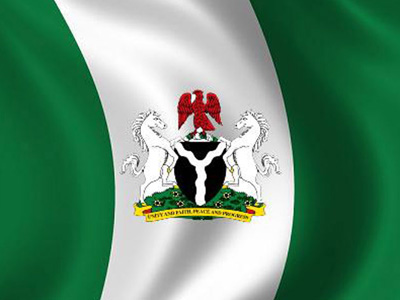Marketing A Nation: Beyond Stereotypes, Toward Soft Power

In his book Competitive Identity, Simon Anholt, an independent policy advisor who coined the term “nation brand,” notes that we often view the world through simplistic clichés. To many, Paris is elegance. Japan is technology. Switzerland is precision. Rio is carnival. Tuscany is the good life. Unfortunately, many African nations are reduced to tired stereotypes of poverty, corruption, and instability. These mental shortcuts, whether accurate or not, shape where we travel, where we invest, and which products we trust.
This dynamic is particularly true for Nigeria. Despite being Africa’s largest economy and a global cultural powerhouse, the country’s reputation is often defined by negative perceptions. Travel advisories from the U.S. and other nations highlight risks such as crime, civil unrest, and inconsistent healthcare. These warnings, while legitimate, reinforce a global image of Nigeria as unsafe and unstable, often drowning out its successes.
And yet, reality tells a different story. Afrobeats is filling stadiums worldwide. Nollywood is a force on streaming platforms. Nigerian tech startups are attracting hundreds of millions in foreign investment. This tension between a country’s vibrant reality and its outdated global perception is at the heart of Nigeria’s branding challenge.
Anholt calls this Competitive Identity(pdf), a strategy that combines branding, public diplomacy, and economic policy to manage a nation’s reputation. For Nigeria, it’s not just theory. It’s an urgent necessity.
Why Nation Branding Matters
Marketing a country is not about slogans on football jerseys or billboards in foreign capitals. It is about shaping perceptions that drive real choices: where investors place capital, where tourists spend their money, and how citizens feel about their own country.
According to the World Travel & Tourism Council, tourism accounted for 10% of global GDP in 2024. Perception often determines who shares in that pie. The Anholt-GfK Nation Brands Index consistently shows that countries with stronger reputations attract more foreign direct investment (FDI).
Rwanda offers a clear example. Deliberate rebranding, paired with policy reforms, helped lift FDI inflows to record highs; $820 million in 2024 alone, with more than $2.7 billion attracted between 2020 and 2024.
For Nigeria, the stakes are just as high. Negative perceptions raise the cost of borrowing, slow investment flows, and erode citizens’ pride. Conversely, a stronger nation brand could unlock tourism revenues and close the credibility gap that many Nigerian entrepreneurs often face abroad. Our creative exports, already thriving through sheer excellence, would have found global reckoning far easier under a stronger national brand.
Culture as Currency
One of Nigeria’s greatest strengths is culture. Afrobeats has become one of the fastest-growing music genres in the world. Spotify reports billions of streams globally, while Burna Boy, Davido, and Wizkid headline arenas from London to New York. That is not just music; it is soft power.
Nollywood tells a similar story. According to PwC’s Africa Entertainment and Media Outlook 2024–2028, Nigeria produces around 2,500 films annually. The country’s entertainment and media market, worth $9 billion in 2023, is projected to reach $13.6 billion by 2028. Nollywood’s growing presence on Netflix and other platforms has only deepened its global reach.
By leveraging these industries, which the government has wisely begun to support through policy and investment, Nigeria projects influence, earns foreign exchange, and creates jobs. Every concert abroad, every Nollywood film streamed in Paris or Rio, is a brand touchpoint for Nigeria.

Lessons from Others
Nigeria is not alone in wrestling with reputation. Other nations have shown how deliberate branding can shift perceptions.
South Korea harnessed the global rise of K-pop and film, supported by sustained government investment in education and technology, to reposition itself as both a cultural and technological powerhouse.
Singapore, once dismissed as a “tropical backwater,” transformed into a thriving global city-state by aligning infrastructure, policy, and communications until it became synonymous with efficiency and business-friendly governance.
Ghana’s “Year of Return” in 2019 is another case study. By appealing directly to the African diaspora, the country attracted nearly a million visitors and boosted tourism revenues by $1.9 billion.
Each of these examples shows that branding only works when matched with genuine reforms and investments. Storytelling without substance is just spin.
The Inside-Out Challenge
The harder part of branding Nigeria lies within. How do you sell a country to the world when many of its citizens are cynical about it?
Wally Olins, one of the pioneers of nation branding, stressed that internal buy-in is critical. Citizens are the first ambassadors of a country’s brand. If they don’t believe the story, no one else will.
This begins with making benefits visible. When Afrobeats creates jobs or Nollywood generates billions, those wins should be communicated clearly and consistently. Citizens need to see how global success translates into local opportunity.
It also means localizing the narrative. Messages resonate more when they are told by community leaders, young people, and creatives; people who reflect the realities of everyday Nigerians. Nigeria has experimented with this approach, such as veteran Nollywood actress Sola Sobowale recently appearing alongside a government minister to promote the Nigerian Postal Service. While it grabbed attention, the framing was still government-led. For such efforts to resonate, cultural figures and community voices must lead, with officials taking a back seat.
Finally, the message must align with policy. It is impossible to market tourism when safety is in question, or attract investors when bureaucracy frustrates entrepreneurs. Branding cannot paper over structural gaps; it must be reinforced by real improvements on the ground.
Role of the National Orientation Agency
Nigeria’s National Orientation Agency (NOA) carries the statutory mandate to promote national identity, patriotism, and civic values. In principle, it should sit at the center of Nigeria’s nation-branding effort. In practice, it has often lacked the modern storytelling tools, cultural partnerships, and measurement frameworks that make branding effective.
Imagine if NOA collaborated with Afrobeats stars to embed civic pride into music, or if Nollywood films subtly showcased innovation and resilience. Those narratives would cut through more powerfully than any press statement or billboard.
To its credit, the agency has recently launched campaigns on security awareness and civic values; signs of an institution attempting to rise to its mandate. The real test, however, lies in execution: whether such campaigns resonate with citizens and build the credibility required to support Nigeria’s global brand.
That tide may now be shifting. The appointment of Patricia Obozuwa as Managing Director of the Nigeria Global Reputation Management Project, a flagship initiative under the NOA, signals a serious step-change in how Nigeria intends to project its identity to the world.
With more than two decades of experience in global communications, sustainability, and brand leadership, Obozuwa brings more than optics. As she wrote on LinkedIn, “Our mandate is clear — to align global perception with Nigeria’s dynamic economic and cultural reality. We will proactively manage our nation’s reputation as a key strategic asset that fuels economic growth, attracts sustainable investment, and enhances our diplomatic standing.”
Her appointment reframes the NOA from being merely a mouthpiece to becoming the operational hub of Nigeria’s nation-brand engine. It signals that the government is moving from symbolic gestures toward real institutional capacity; integrating brand strategy, international outreach, and reputation management under one roof.
In the framework of Competitive Identity, this development strengthens Nigeria’s pillar of institutional consistency. For the first time in a long time, there is a national-level project with dedicated leadership whose success will be judged not just by perception shifts but by tangible outcomes; investment inflows, partnerships secured, and global credibility earned.

Data-Driven Storytelling
Nation branding works best when it’s backed by hard numbers. Nigeria has plenty to highlight.
The fintech sector is booming. Paystack became a household name when Stripe acquired it for over $200 million; Nigeria’s most high-profile startup exit. Flutterwave, valued at over $3 billion after its 2022 Series D, is Africa’s most valuable fintech. Moniepoint joined the unicorn club in 2024, raising $110 million in a round led by Google at a valuation above $1 billion. Each milestone signals not just capital, but confidence in Nigeria’s digital economy.
The events economy is also thriving. Detty December, the end-of-year season of concerts and festivals, has become an economic juggernaut. Estimates suggest it injected over $220 million (₦330 billion) into the economy in 2023. In Lagos alone, the 2024 festivities generated $71.6 million (₦108 billion) in state revenue, fueled by 1.2 million visitors. Hotels pulled in more than ₦50 billion, short-let apartments ₦21 billion, beach resorts ₦4.5 billion, and luxury car rentals ₦1.5 billion.
And then there are creative exports. Afrobeats, Nollywood, and fashion, all carrying Nigeria’s voice abroad. Making revenues and royalties visible both at home and abroad builds credibility internationally and pride locally.
In short, if storytelling humanizes the brand, data gives it weight. Numbers turn narratives into proof.
Fixing the Fundamentals
The Nigerian government is not blind to the value of soft power. The Ministry of Art, Culture, and the Creative Economy has launched initiatives to support the creative industry. The Ministry of Information has also pushed reorientation campaigns through NOA. These are steps in the right direction.
But for nation branding to truly work, three structural challenges must be addressed.
First, consistency. Campaigns often change with every new administration. A nation brand cannot be reinvented every four years or every time a minister changes. It needs continuity and ownership beyond politics.
Second, infrastructure and security. No amount of clever marketing can outweigh the realities of unreliable power or safety concerns. The brand promise must match people’s daily experiences.
Third, coordination. Ministries and agencies should create the enabling environment, but private players uch as artistes, filmmakers, entrepreneurs, must be the storytellers. Nigeria’s most credible narratives will come from those who already command global audiences.
A Playbook for Nigeria
To build a brand that commands respect and inspires pride, the path forward for Nigeria is simple but strategic.
The country needs to prioritize industries where it already leads: creative exports and fintech. These sectors have global recognition and proven economic impact.
It is also critical to create a cross-sector nation branding project team including NOA, ministries, professional bodies such as NIMN and NIPR, trade groups such as ADVAN, and private-sector champions.
Nigeria should look towards cultural and entrepreneurial icons as official partners in projecting Nigeria’s story, not just incidental successes that can be latched onto.
Periodically published dashboards showing jobs created, investments attracted, and export growth can also elevate the gains and foster trust. When citizens see hard data, they are likely to believe. When investors see it, confidence follows.
Marketing Nigeria is not about spin. It is about aligning policy, performance, and storytelling to create a narrative that citizens and the world can believe.
When political affiliation, tribe, or religion no longer distort views of the nation and camaraderie extends beyond sports rivalries, then the branding will have worked.
Until then, the task is clear: fix the fundamentals, amplify the wins, and tell the story with data.


